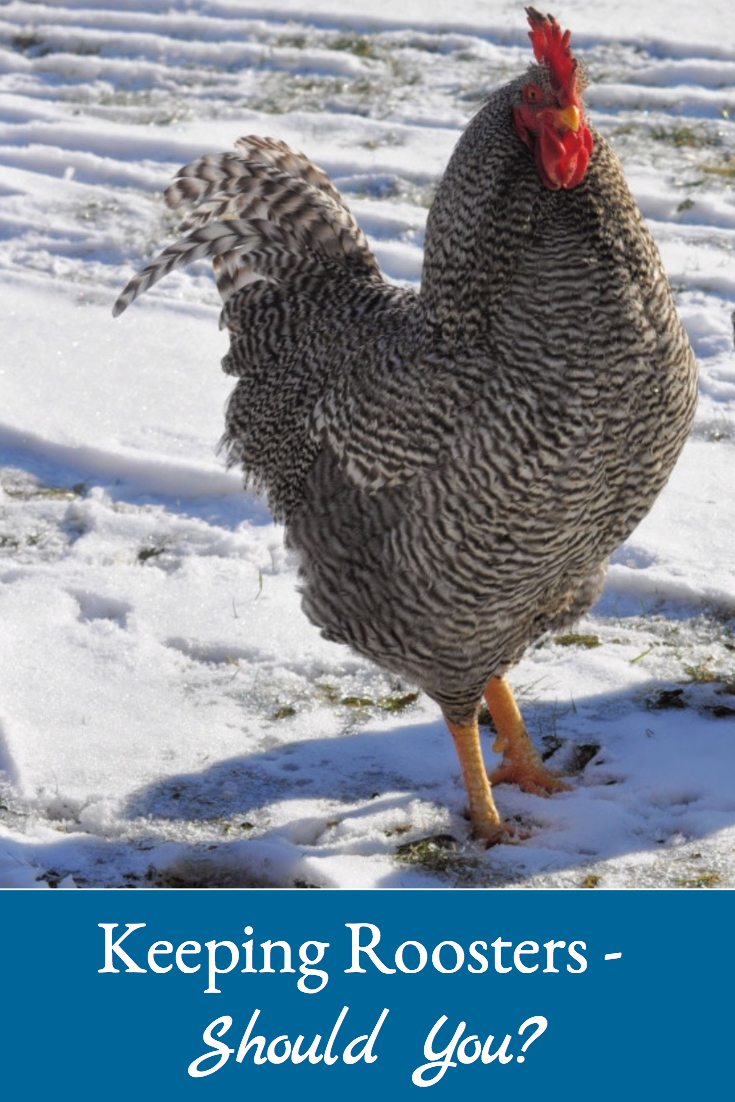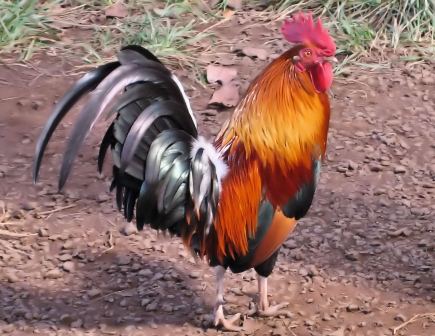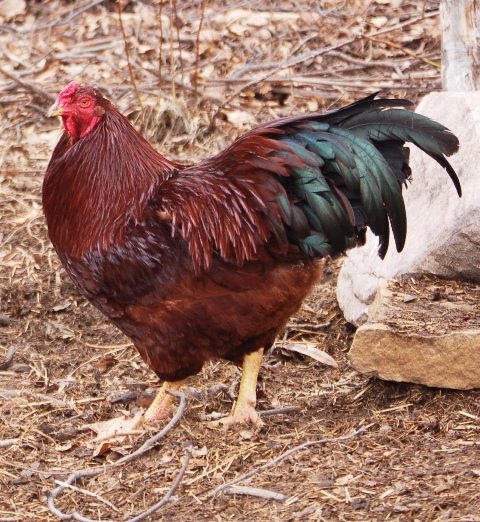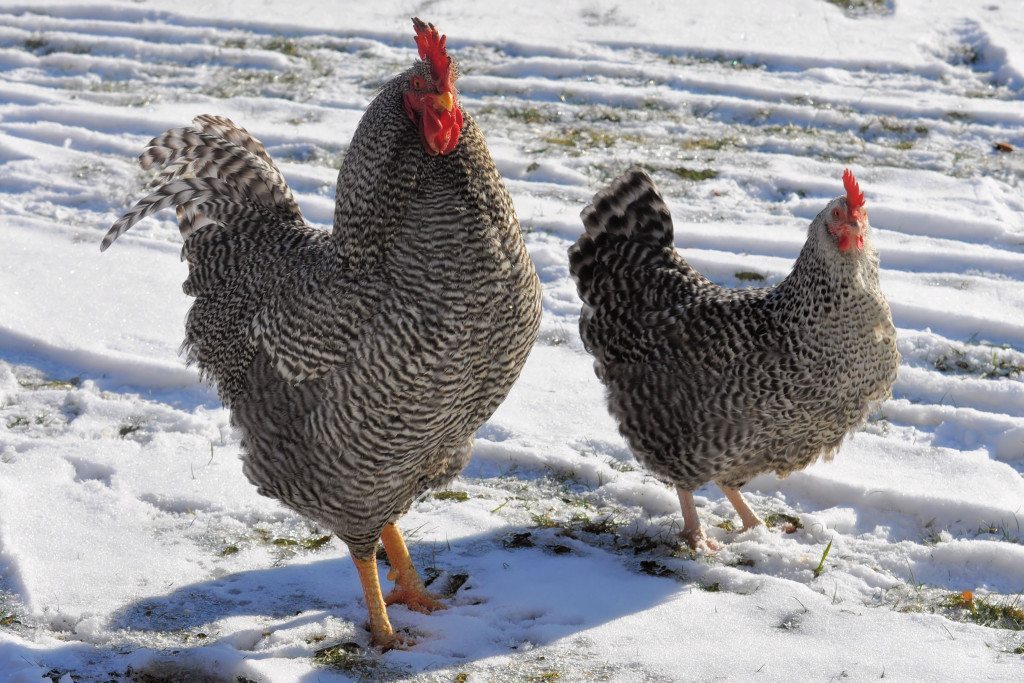
Reasons For NOT Keeping Roosters
1) They Aren’t Allowed In Your Location
Today, there are many cities and towns that allow chicken hens, but draw the line at roosters.
Roosters crow very early in the morning, randomly (as far as we can tell) throughout the day, and regularly seem to participate in crowing duels. Apparently, the rooster that can crow the loudest wins.
Many cities have noise ordinances and therefore prohibit roosters because of the crowing. If your town or city prohibits them, then keeping them is really out of the question – it’s very difficult to hide a crowing rooster.
2) They Can Be Aggressive
Roosters believe that their job in life is to protect their “hens” and make more chickens. Some roosters are more aggressive than others in the way they accomplish their jobs but most take it very seriously. They are usually ready to do battle with anything they perceive as threatening their hens, and that may include household pets, children, and even their owners.
If aggression is a concern, some rooster breeds like Silkies, Brahma, Orpington, and Cochin tend to be more docile. Also, roosters that have been raised and handled in a backyard or homestead environment from hatching are typically less aggressive (click HERE to learn more).
3) They Don’t Make Eggs
It’s not necessary to have a rooster for hens to produce eggs, it’s just necessary to have a rooster if “fertile” eggs are desired. So, roosters are another mouth to feed that don’t produce any eggs if fertilized eggs aren’t a priority.

Wild Kauai Rooster
Reasons FOR Keeping Roosters:
1) They Protect Their Flock
They’ll try to find food for the hens, watch for any signs of danger or predators, and sound an alarm if they spot anything threatening. Upon hearing the alarm, the hens run for cover, while the rooster will stay to do battle. They’ll sacrifice themselves to protect the hens, and ensure the survival of their progeny.
2) It’s The Easiest Way To Get Fertile Eggs
If you want to incubate and hatch your own eggs or let the hens go “broody” and hatch their own eggs, then you need a rooster.
3) They Look Good
They’re colorful, beautiful, and intriguing additions to the chicken flock.

Buckeye Rooster
Other Considerations On Keeping Roosters
When buying day-old chicks or eggs to hatch, the odds are that half of the birds will be roosters. However, one rooster is sufficient for 10 – 12 hens, so regardless of whether you are keeping roosters or not, there are invariably extras. One alternative for these excess roosters is raising them to processing age for meat (learn more HERE).
If you’re a chicken-keeper with three hens in a small-urban setting you might have no reason to consider keeping roosters; whereas, someone free-ranging 30 birds on a few acres might think roosters were essential. It all depends on your individual situation!

Plymouth Barred Rock Hen and Rooster
Vicki W says
I can confirm that Silkie roosters are not aggressive. I have two, and they are perfect gentlemen, even keeping the third rooster, an aggressive d’Uccle, away from me when i’m in their run.
Lesa says
Hi Vicki, thank for sharing about your Silkies. So many think roosters are all aggressive, and they’re not!
Of Goats and Greens says
Great post and lovely rooster photos! I’m glad to see how colorful the Buckeye rooster is. I have two Buckeye hens. I did get talked into getting a rooster for my flock (that I started last spring), he’s a silver laced Wyandotte, also a handsome specimen. He may not care for me, but he’s not nasty. He’s very solicitous of his 11 ladies, letting them eat first and all. And being alert when they are out on the field. I’m so glad I have him!
Lesa says
Hi, thanks for the compliment on the post and rooster photos! I do like having the roosters too, and they are quite beautiful. Haven’t had a silver laced Wyandotte yet, but the pictures I’ve seen are quite impressive.